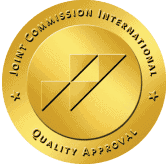You deserve compassionate, evidence-based treatment that addresses the unique challenges of inhalant dependency. Professional treatment centers understand that inhalant addiction requires specialized care due to the severe health risks and complex withdrawal patterns associated with these substances. You don’t have to face this alone – effective treatment options are available to help you reclaim your life and health.
What are the warning signs of inhalant abuse?
Recognizing the signs of inhalant abuse is critical for getting timely help. You may notice physical, behavioral, and psychological changes that indicate dangerous substance use patterns. Professional treatment centers report that early intervention significantly improves recovery outcomes for individuals struggling with inhalant dependency.
Physical warning signs you might observe:
- Chemical odors on breath, clothing, or skin from paint, gasoline, or cleaning products
- Paint or oil stains around the mouth, nose, or on fingernails
- Frequent nosebleeds or persistent runny nose
- Red, watery, or bloodshot eyes with involuntary eye movements
- Sores or rashes around the mouth and nose area
- Unexplained burns or frostbite on lips, mouth, or throat
- Persistent cough or respiratory irritation
- Sudden weight loss or loss of appetite
- Frequent headaches and dizziness
- Tremors or unsteady movements
Behavioral changes that may indicate inhalant use:
- Slurred speech or difficulty speaking clearly
- Unsteady walking or loss of coordination
- Appearing intoxicated without alcohol smell
- Hiding aerosol cans, cleaning products, or paint containers
- Spending excessive time in garages, basements, or isolated areas
- Declining performance at work or school
- Withdrawing from family and friends
- Mood swings and increased irritability
- Memory problems and difficulty concentrating
- Engaging in risky or dangerous behaviors
Psychological symptoms you should watch for:
- Anxiety and panic attacks
- Depression and emotional instability
- Hallucinations or delusions
- Paranoia and suspicious behavior
- Sleep disturbances and insomnia
- Confusion and disorientation
- Aggressive or violent outbursts
- Loss of interest in previously enjoyed activities
- Suicidal thoughts or behaviors
- Personality changes and emotional numbness
Why is inhalant addiction so dangerous?
Inhalant abuse poses immediate life-threatening risks that make professional treatment essential. You face serious health consequences every time you use these substances, as they can cause sudden death even on first use. Treatment centers specializing in inhalant addiction understand the unique medical complications and provide the intensive monitoring you need for safe recovery.
Immediate health risks you face:
- Sudden sniffing death syndrome from cardiac arrhythmias
- Asphyxiation from oxygen displacement in lungs
- Suffocation from plastic bags or containers
- Seizures and loss of consciousness
- Choking on vomit during intoxication
- Burns from flammable substances
- Accidents due to impaired coordination
- Coma from severe oxygen deprivation
- Fatal injuries from falls or crashes
- Respiratory failure and cardiac arrest
Long-term health consequences include:
- Permanent brain damage affecting memory and learning
- Liver and kidney damage requiring ongoing medical care
- Hearing loss and vision problems
- Bone marrow damage affecting blood cell production
- Muscle weakness and coordination problems
- Chronic respiratory issues and lung damage
- Heart rhythm abnormalities and cardiovascular disease
- Cognitive impairment and dementia-like symptoms
- Peripheral neuropathy causing numbness and pain
- Increased risk of accidents and injuries
According to recent medical research, approximately 332,000 individuals aged 12 or older met the criteria for inhalant use disorder in 2023. The mortality rate associated with inhalant abuse is among the highest of all substance use disorders, making immediate professional intervention critical for your safety and survival.
How does professional inhalant addiction treatment work?
Professional treatment centers use evidence-based approaches specifically designed for inhalant addiction recovery. You’ll receive comprehensive medical and psychological support that addresses both the physical dangers and underlying factors contributing to your substance use. Treatment programs are structured to provide the intensive care you need while building skills for long-term recovery.
Medical stabilization and assessment:
Treatment begins with a thorough medical evaluation to assess the extent of physical damage from inhalant use. You’ll receive immediate medical care for any complications while healthcare professionals monitor your vital signs and neurological function. This critical phase ensures your safety as your body begins to heal from the toxic effects of inhalant abuse.
Comprehensive treatment programming:
Professional facilities offer multiple levels of care to match your specific needs and recovery progress. You may begin with drug rehab for intensive medical supervision, then transition to a partial hospitalization program (PHP) for continued daily support while returning home evenings. As you stabilize, you can progress to an intensive outpatient program (IOP) with multiple weekly sessions, eventually moving to a standard outpatient program (OP) for ongoing maintenance care.
Specialized therapeutic interventions:
Treatment centers provide individual counseling, group therapy, and family sessions to address the psychological aspects of addiction. You’ll work with addiction specialists who understand the unique challenges of inhalant dependency, including the rapid onset of intoxication and the high risk of relapse. Cognitive-behavioral therapy helps you identify triggers and develop healthy coping strategies.
Medical monitoring and support:
Given the serious health risks associated with inhalant abuse, you’ll receive ongoing medical monitoring throughout treatment. Healthcare professionals will assess and treat any organ damage while providing medications to manage withdrawal symptoms and co-occurring mental health conditions. This medical oversight is essential for safe recovery from inhalant addiction.
The most effective treatment approaches for inhalant addiction
Evidence-based treatment methods have proven most successful in helping individuals recover from inhalant addiction. You’ll benefit from integrated approaches that address both the immediate medical risks and the underlying psychological factors driving your substance use. Treatment centers combine medical intervention with behavioral therapies to provide comprehensive care.
Cognitive-behavioral therapy (CBT):
CBT helps you identify the thoughts, feelings, and situations that trigger inhalant use. You’ll learn practical skills to manage cravings, cope with stress, and make healthier choices. This approach is particularly effective for inhalant addiction because it addresses the impulsive nature of use and helps you develop better decision-making skills.
Motivational interviewing:
This therapeutic approach helps you explore your own motivations for change and overcome ambivalence about recovery. You’ll work with counselors who understand the unique challenges of inhalant addiction and can help you find internal motivation to maintain sobriety. This method is especially valuable given the high relapse rates associated with inhalant abuse.
Family therapy and support:
Inhalant addiction often affects entire families, particularly when it involves adolescents or young adults. You and your family members will participate in therapy sessions that improve communication, rebuild trust, and create a supportive home environment for recovery. Family involvement significantly improves treatment outcomes and long-term success rates.
Medical management:
Due to the severe health consequences of inhalant abuse, medical management remains a critical component of effective treatment. You’ll receive ongoing medical care to address organ damage, neurological complications, and other health issues resulting from inhalant use. This medical support continues throughout your recovery journey.
Peer support and group therapy:
Connecting with others who understand the challenges of inhalant addiction provides valuable support and accountability. You’ll participate in group sessions where you can share experiences, learn from others’ recovery journeys, and build a network of sober support. These connections often become lifelong resources for maintaining recovery.
What to expect during inhalant addiction treatment
Your treatment journey will be carefully structured to address the unique challenges of inhalant addiction while ensuring your safety and comfort. Professional treatment centers understand that inhalant abuse requires specialized protocols due to the severe health risks and complex withdrawal patterns. You’ll receive individualized care that adapts to your specific needs and recovery progress.
Initial assessment and medical evaluation:
When you enter treatment, you’ll undergo comprehensive medical and psychological assessments to determine the extent of damage from inhalant use. Healthcare professionals will evaluate your cardiovascular, neurological, and respiratory systems while assessing your mental health status. This thorough evaluation guides your personalized treatment plan and ensures appropriate medical monitoring.
Structured treatment programming:
Your treatment will progress through different levels of care based on your needs and stability. You may start in drug rehab for intensive medical supervision and 24-hour care. As you stabilize, you’ll transition to PHP for daily treatment while returning home evenings. IOP provides continued structure with multiple weekly sessions, while OP offers ongoing support for long-term recovery maintenance.
Daily therapeutic activities:
Each day of treatment includes individual counseling sessions, group therapy, educational workshops, and recreational activities. You’ll work with addiction specialists who understand inhalant abuse patterns and can help you develop effective coping strategies. These activities are designed to address both the physical and psychological aspects of your addiction.
Medical monitoring and care:
Given the serious health risks of inhalant abuse, you’ll receive ongoing medical monitoring throughout treatment. Healthcare professionals will track your vital signs, assess neurological function, and provide treatment for any complications. This medical oversight ensures your safety while your body heals from the toxic effects of inhalant use.
Family involvement and support:
Treatment centers recognize that family support significantly improves recovery outcomes. Your family members will be invited to participate in educational sessions, therapy meetings, and treatment planning discussions. This involvement helps rebuild relationships damaged by addiction while creating a supportive environment for your recovery.
Contact Assure Recovery
Don’t wait to get the specialized help you need for inhalant addiction. The risks associated with continued inhalant use are too serious to delay treatment, and professional intervention can save your life. Assure Recovery understands the unique challenges of inhalant addiction and provides the comprehensive medical and psychological care you need for safe, successful recovery.



